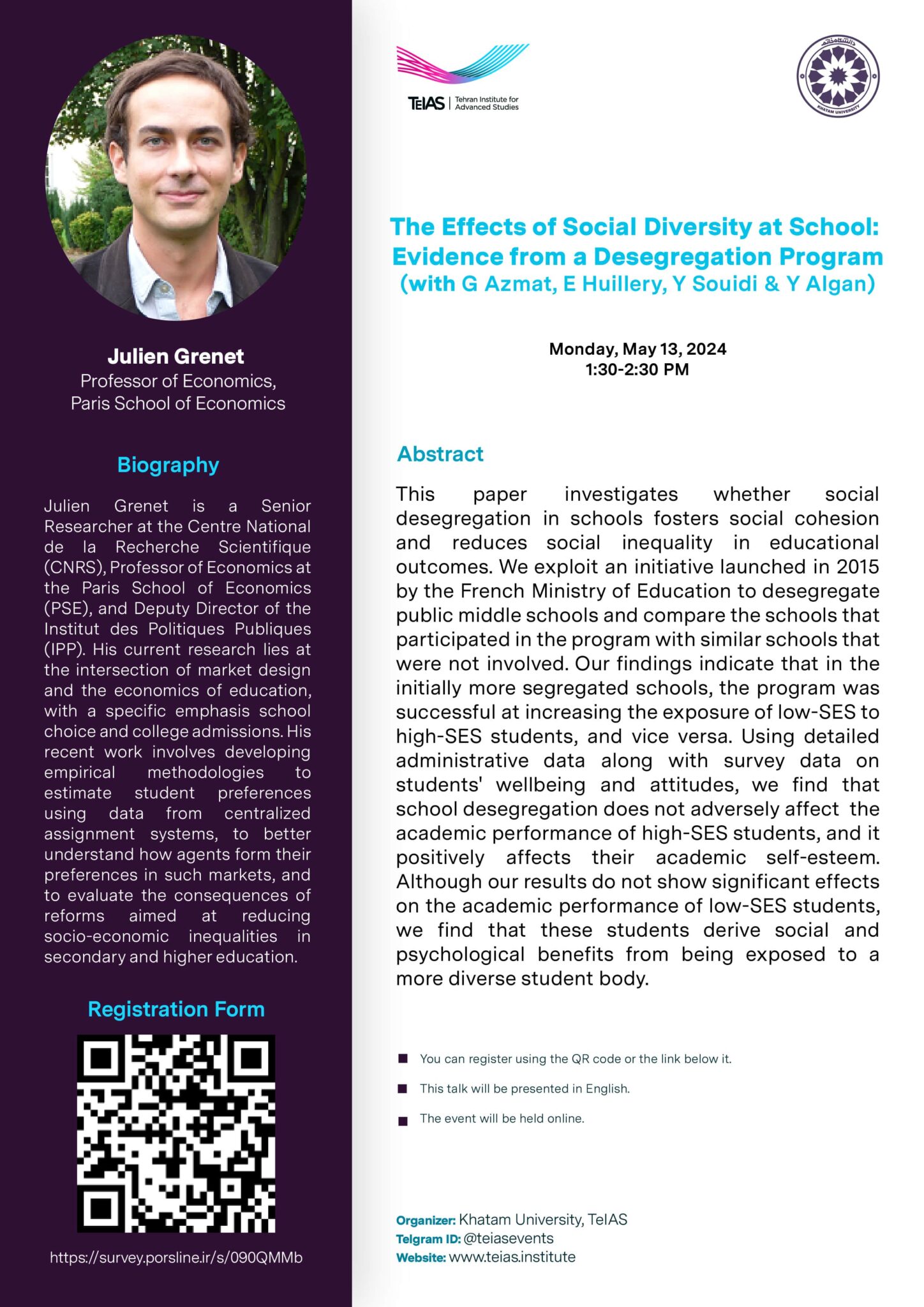
Julien Grenet is a Senior Researcher at the Centre National de la Recherche Scientifique (CNRS), Professor of Economics at the Paris School of Economics (PSE), and Deputy Director of the Institut des Politiques Publiques (IPP). His current research lies at the intersection of market design and the economics of education, with a specific emphasis school choice and college admissions. His recent work involves developing empirical methodologies to estimate student preferences using data from centralized assignment systems, to better understand how agents form their preferences in such markets, and to evaluate the consequences of reforms aimed at reducing socio-economic inequalities in secondary and higher education.

